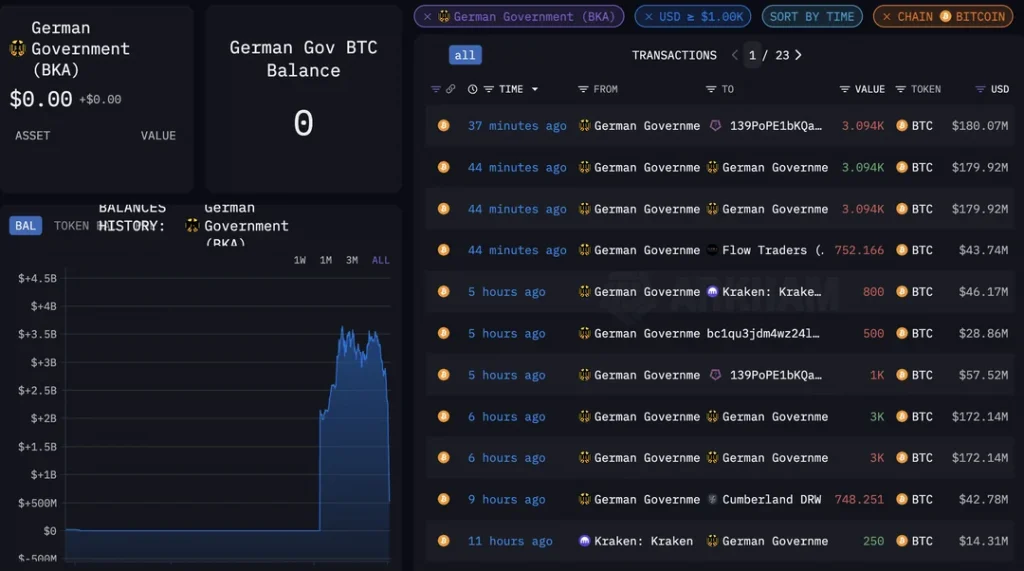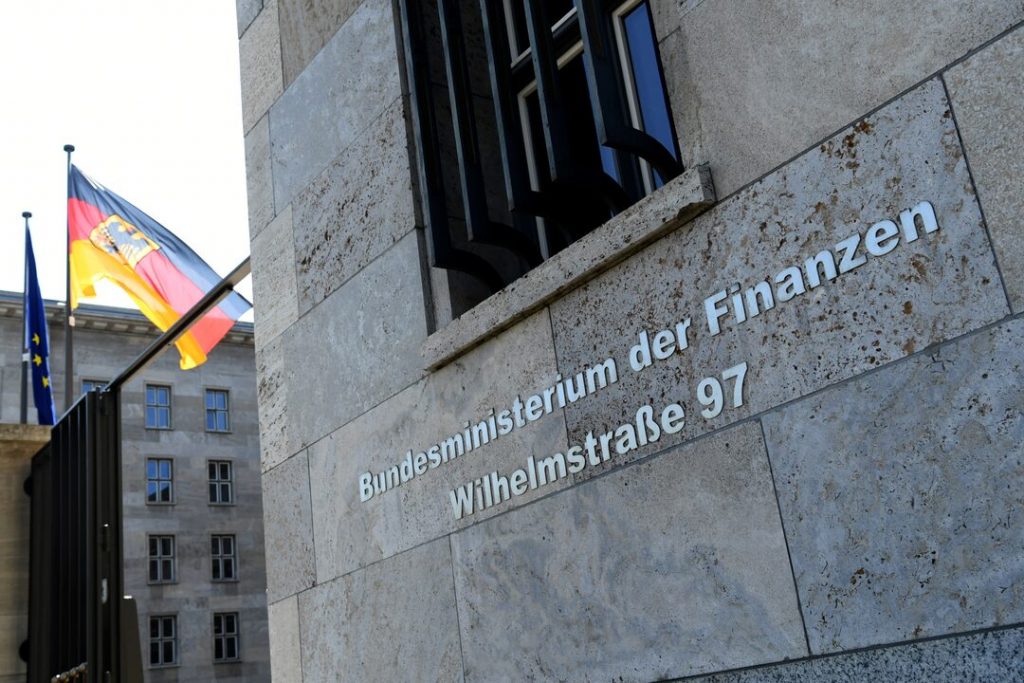In the ever-evolving world of cryptocurrency, where fortunes are made and lost at the click of a mouse, a surprising player has emerged: the German government.
The German government recently completed a significant financial maneuver by offloading its entire Bitcoin holdings, initially valued at around $2 billion. This massive stash, consisting of approximately 50,000 BTC, was seized primarily from illegal activities related to the Movie2k.to case, where authorities confiscated assets from a pirated movie streaming site.
However, over the past few weeks, the government systematically sold these holdings in several large transactions, including a notable 16,000 BTC moved in a single day, totaling nearly $1 billion. The final sale, completed on July 12, saw the government divesting its last 3,846 BTC, effectively ending its involvement in the cryptocurrency market.

The reasons behind the sell-off are multifaceted. Initially, the government faced technical and legal challenges in accessing the digital wallets, delaying the liquidation process. However, as the market dynamics evolved, the rising value of Bitcoin provided a lucrative exit opportunity.
Moreover, the German government seemed to prioritize transparency and regulatory compliance over speculative gains, opting to liquidate the assets rather than hold them as a hedge against financial uncertainty. The sell-off contributed to downward pressure on Bitcoin prices, keeping them below the $60,000 mark. Despite concerns about market impact, the sales were orderly, and institutional investors capitalized on the lower prices, indicating a robust demand for Bitcoin.
The Backstory: How Did Germany Get All This Bitcoin?
This massive pile of digital currency came into government hands through law enforcement efforts. Over the years, German authorities have cracked down on various illegal activities—think drug trafficking and money laundering—where Bitcoin and other cryptocurrencies were used as the payment method of choice. When the authorities seize these digital assets, they technically become government property.

Typically, these confiscated assets would be auctioned off, with the proceeds going into the government’s budget. However, Bitcoin’s wild price swings and the technical difficulties involved in accessing and selling these assets have sometimes led to delays. As a result, Germany’s law enforcement has ended up holding onto a significant amount of Bitcoin, often longer than initially planned.
What Could Happen Next?
The sale of such a large amount of Bitcoin over a short period exerted considerable downward pressure on the market, leading to a 15% price decline. This move by the German government has sparked discussions about its impact on both the cryptocurrency market and potential strategic considerations.
Some market analysts criticized the decision, arguing that selling Bitcoin for fiat currency might be a strategic misstep, especially given the limited supply and energy-intensive process of acquiring Bitcoin. However, with the government’s holdings now fully liquidated, some market experts are cautiously optimistic about a potential rebound in Bitcoin’s value, buoyed by positive inflation data and upcoming financial products like Ethereum ETFs
The Bigger Picture
Germany’s Bitcoin fortune is more than just a quirky news story; it’s a snapshot of the broader changes happening in the world of finance. As digital currencies become more mainstream, even conservative entities like governments are finding themselves involved, whether they planned to or not. For Germany, this unexpected crypto windfall could lead to new opportunities and challenges in managing public funds and shaping financial policy.
In the meantime, looking ahead, Germany’s complete exit from Bitcoin holdings might set a precedent for other governments managing seized digital assets. It could also influence the cryptocurrency market, as large-scale sell-offs by state entities can impact prices. With the market increasingly incorporating institutional and governmental actions, the future of Bitcoin and other cryptocurrencies may see more regulatory scrutiny and strategic governmental involvement.














